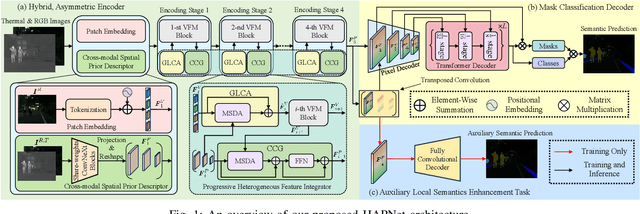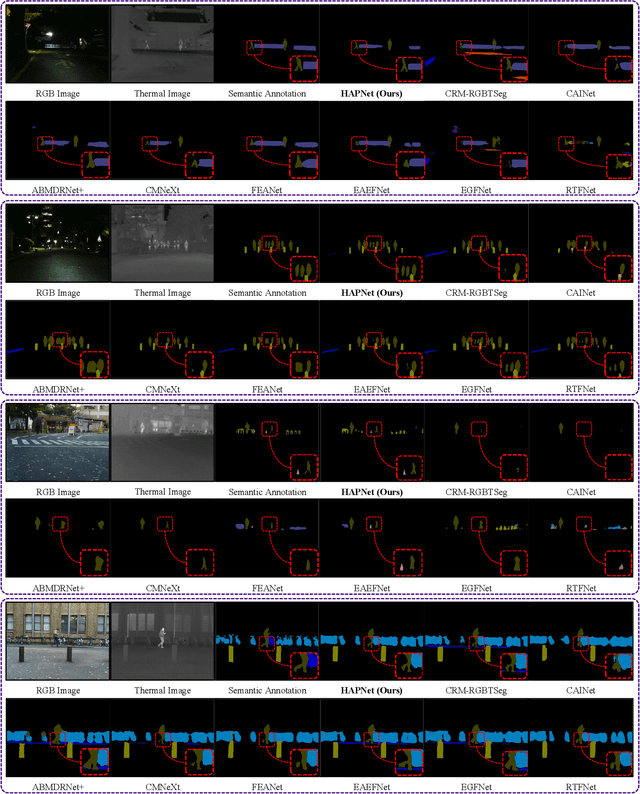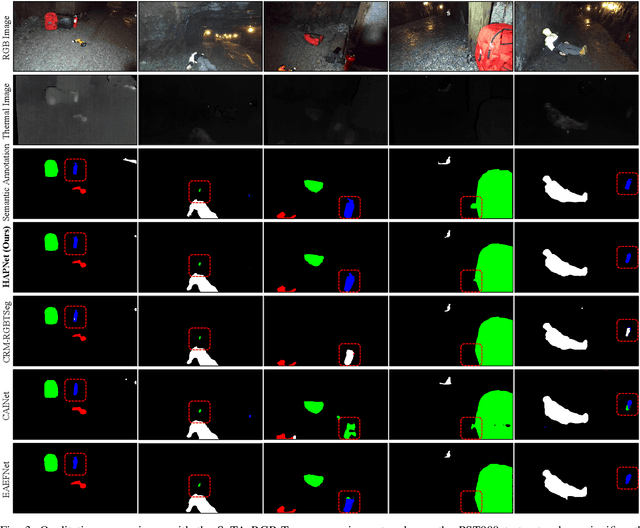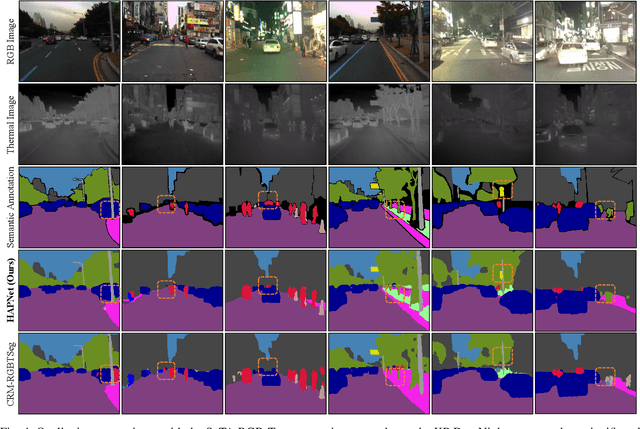HAPNet: Toward Superior RGB-Thermal Scene Parsing via Hybrid, Asymmetric, and Progressive Heterogeneous Feature Fusion
Paper and Code
Apr 06, 2024



Data-fusion networks have shown significant promise for RGB-thermal scene parsing. However, the majority of existing studies have relied on symmetric duplex encoders for heterogeneous feature extraction and fusion, paying inadequate attention to the inherent differences between RGB and thermal modalities. Recent progress in vision foundation models (VFMs) trained through self-supervision on vast amounts of unlabeled data has proven their ability to extract informative, general-purpose features. However, this potential has yet to be fully leveraged in the domain. In this study, we take one step toward this new research area by exploring a feasible strategy to fully exploit VFM features for RGB-thermal scene parsing. Specifically, we delve deeper into the unique characteristics of RGB and thermal modalities, thereby designing a hybrid, asymmetric encoder that incorporates both a VFM and a convolutional neural network. This design allows for more effective extraction of complementary heterogeneous features, which are subsequently fused in a dual-path, progressive manner. Moreover, we introduce an auxiliary task to further enrich the local semantics of the fused features, thereby improving the overall performance of RGB-thermal scene parsing. Our proposed HAPNet, equipped with all these components, demonstrates superior performance compared to all other state-of-the-art RGB-thermal scene parsing networks, achieving top ranks across three widely used public RGB-thermal scene parsing datasets. We believe this new paradigm has opened up new opportunities for future developments in data-fusion scene parsing approaches.
 Add to Chrome
Add to Chrome Add to Firefox
Add to Firefox Add to Edge
Add to Edge